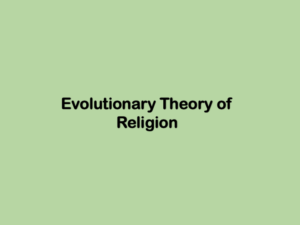Genesis Chapter 2
Genesis 2 retells the creation of man and woman, but giving more detail that in Genesis 1. Some scholars propose this is evidence of the compiling of two separate creation myths while other scholars propose this is an Ancient Near East literary tradition, where the narrative steps backwards and provides more detail.

Annotated Commentary with Links
| 1The heavens, the earth, and all their vast array were finished. | |
| 2On the seventh day God finished his work which he had done; and he rested on the seventh day from all his work which he had done. | |
| 3God blessed the seventh day, and made it holy, because he rested in it from all his work of creation which he had done. | |
| 4This is the history off the generations of the heavens and of the earth when they were created, in the day that Yahweh God made the earth and the heavens. | In this verse, the name of God switches from Elohim to Yahweh Elohim, a combination of the two major names for God. |
| 5No plant of the field was yet in the earth, and no herb of the field had yet sprung up; for Yahweh God had not caused it to rain on the earth. There was no mane to till the ground, | Chapter 2 backtracks and retells the creation of man. Some scholars point to this as a combination of separate literary traditions (documentary hypothesis) while other propose this is a common Ancient Near Eastern literary technique. |
| 6but a mist went up from the earth, and watered the whole surface of the ground. | |
| 7Yahweh God formed man from the dust of the ground, and breathed into his nostrils the breath of life; and man became a living soul. | |
| 8Yahweh God planted a garden eastward, in Eden, and there he put the man whom he had formed. | |
| 9Out of the ground Yahweh God made every tree to grow that is pleasant to the sight, and good for food, including the tree of life in the middle of the garden and the tree of the knowledge of good and evil. | |
| 10A river went out of Eden to water the garden; and from there it was parted, and became the source of four rivers. | |
| 11The name of the first is Pishon: it flows through the while land of Havilah, where there is gold; | |
| 12and the gold of that land is good. Bdellium and onyx stone are also there. | |
| 13The name of the second river is Gihon. It is the same river that flows through the whole land of Cush. | |
| 14The name of the third river is Hiddekel. This is the one which flows in front of Assyria. The fourth river is the Euphrates. | Most translations list the third river as the Tigris. The Tigris has had many names throughout the centuries. Hiddekel is the Hebrew version of the Tigris, taken from the Akkadian Idiqlat, which in turn is from Sumerian. |
| 15Yahweh God took the man, and put him into the garden of Eden to cultivate and keep it. | |
| 16Yahweh God commanded the an, saying, “You may freely eat of every tree of the garden; | |
| 17but you shall not eat of the tree of the knowledge of good and evil; for in the day that you eat of it, you will surely die.” | |
| 18Yahweh God said, “It is not good for the man to be alone. I will make him a helper comparable to him.” | The Hebrew for the second part of verse 18 literally reads, “I will make him for him a helper as in front of him.” This evokes an image of the creation of a mirror-image, or second half, completing the whole. |
| 19Out of the ground Yahweh formed every animal of the field, and every bird of the sky, and brought them to the man to see what he would call them. Whatever the man called every living creature became its name. | |
| 20The man gave names to all livestock, and to the birds of the sky, and to every animal of the field; but for man there was not found a helper comparable to him. | |
| 21Yahweh God caused the man to fall into a deep sleep. As the man slept, he took one of his ribs, and closed up the flesh in its place. | |
| 22Yahweh God made a woman from the rib which he had taken from the man, and brought her to the man. | The Hebrew word that is almost universally translated as “rib” is sela, which could more properly be translated as “side.” In other parts of the Old Testament, sela is used to describe the side of the ark of the covenant, a building, or a ridge on a hill. |
| 23The man said, “This is now bone of my bones, and flesh of my flesh. She will be called ‘woman,’ because she was taken out of Man.” | |
| 24Therefor a man will leave his father and his mother, and will join with his wife, and they will be one flesh. | |
| 25The man and his wife were both naked, and they were not ashamed. |
Previous: Genesis 1
Next: Genesis 3
Back to Genesis home page.




